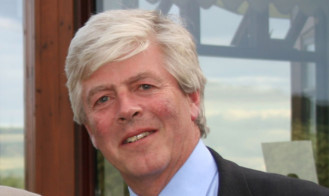SRUC, Scotland’s Rural College, not yet two years old, has announced a closer degree of collaboration with Edinburgh University.
This is not, it seems, a bland statement of intent or a vague aspiration but a new alignment which could have far-reaching effects.
Both the SRUC board and the University Court have hailed what is billed as “a new alignment with the potential to create an influential force in the agricultural world”.
The vision is that it would create opportunities to develop all three legs of what has become known as the Scottish system. SRUC, its predecessor organisation SAC, and the three regional Schools of Agriculture of earlier days prided themselves on being able to deliver research, education and consultancy.
The claim on Wednesday was that SRUC subsidiary SAC Consulting Division would be a major beneficiary because of the access it would have to the university’s research capabilities across a wide range of disciplines.
The new arrangement, if it comes to pass, also has the potential to solve a problem for SRUC. It was founded by a merger of SAC, Elmwood College at Cupar, Oatridge College at Broxburn and Barony College at Dumfries. The new organisation was seen as very much dominated by SAC.
The original title was Scottish Rural University College, hence the abbreviation SRUC.
There was, however, a problem identified almost immediately with the inclusion of the word ‘university’ because the new organisation had no accreditation or powers to award degrees.
It has since then rather awkwardly been known as SRUC, Scotland’s Rural College.
SRUC chairman Lord Jamie Lindsay told The Courier: “The earliest we would be able to gain degree-awarding powers on our own would be 2017, but closer collaboration with the University of Edinburgh could short circuit this.
“To be able to award degrees in our own right would bring important benefits to students and be attractive to staff.”
There is another important factor to consider. Last November SRUC’s chief executive and principal Professor Bob Webb resigned with immediate effect. No explanation from himself or SRUC was forthcoming, but the loss of the man appointed to lead the new organisation after only 14 months raised concerns among the agricultural community.
Deputy chief executive and company secretary Janet Swadling was appointed as interim chief executive, and there has since been no sign of a recruitment campaign aimed at finding a new chief executive.
Asked if this was relevant to the proposed new arrangement with the university, Lord Lindsay said: “It is certainly a factor in how we design a recruitment process for a chief executive.
“We would want to identify our relationship with Edinburgh University before recruiting. The SRUC board has decided to reflect on the job specification so that when we advertise it will be for someone who can deliver our strategic vision.
“The interim management arrangement is working very well.”
In recent years Scottish Government, particularly under current Education Secretary Mike Russell, has pursued a policy of pushing for amalgamation of educational and research institutions.
The policy was largely responsible for the formation of SRUC itself, but Lord Lindsay insisted that this new alignment with the university was “driven by opportunity”.
He added: “This is not driven by external pressure or dynamics or, indeed, by internal pressure.”
“This is a very exciting agreement. The ever-closer collaboration between SRUC and the university in recent years has encouraged the partners to believe that by enhancing our relationship we could through leading research, education and consultancy activity make an even greater contribution to addressing the challenges faced by Scottish, British, EU and global agriculture.”
It is claimed that SRUC would retain its identity and mission, specifically including the complete range of education currently on offer.
There would be continued commitment to SRUC’s rural skills ‘escalator’, offering courses from basic skills up to PhD with students able to progress as far as their ability and ambition take them.
Lord Lindsay was also keen to stress that it would be business as usual at its SAC Consulting offices across the country.
Services and courses on offer at its six campuses would be uninterrupted, although he anticipated additional opportunities and benefits would soon become available.
Another benefit, he maintained, would be the strengthening of partnerships with other Scottish research institutes such as the James Hutton Institute and the Moredun Research Institute.
